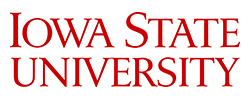GM-Free Feed Can Lead to Increased GHG Emissions, Food Prices & More
If U.S. feed manufacturing facilities increased their use of genetically modified (GM)-free ingredients to satisfy their food retailer customers’ demands, what would be the impact on the environment? Food prices? Or overall feed manufacturing processes?
The American Feed Industry Association’s (AFIA) Sustainability Oversight Committee wrestled with these questions in the late 2010s, particularly as consumer acceptance of GM foods drew skepticism at the state and federal levels. Despite years of their proven safe use by the scientific community, the AFIA sought to answer how feed manufacturing facilities aiming to provide additional GM-free options to their food retailer customers could impact the industry’s sustainability goals and America’s ability to provide an affordable food supply.
The AFIA worked with the Institute for Feed Education and Research to craft a study to examine this topic. Overall, the research found that if more U.S. food companies required feed for the livestock and poultry they source their meat, milk and eggs from to be from GM-free ingredients, then the country would see an increase in greenhouse gas emissions on farms; grain elevator and feed mill product handling and production requirements; and food prices (read executive summary).
About the Study:
Partnering with Dairy Management Inc., MFA Incorporated, the National Corn Growers Association, the U.S. Poultry & Egg Association and others, IFEEDER commissioned Iowa State University and Decision Innovation Solutions to conduct the research. The study examined several environmental indicators (e.g., land sparing, fuel use, nitrogen loss) of using GM versus GM-free corn and soybeans. Then, it modeled handling two differentiated product streams through a variety of scenarios, including at the farm, grain elevator and feed mill levels. Finally, it considered the impact the scenarios would have on the production costs of meat, poultry and dairy foods.






Results:
Overall, the data showed that farmers enjoy many benefits from using GM seed technology, including greater crop yields, reduced land tillage and lower fuel use, which results in reduced carbon emissions. Until non-GM seeds achieve similar advantages, farmers are less incentivized to use them.

For feed production, being part of a potentially expanding GM-free feed market has capital and operating cost considerations – both at the grain elevator and the feed mills themselves. Although it is feasible to segregate crops based on the desired tolerance level of GM ingredients, the management requirements would add production complexities, unless the facility is solely dedicated to non-GM feed.
For consumers, the research showed that non-GM feed could increase the price of feed by as much as $4 to $9 per ton of pork, layer and broiler feed, by 40 cents to $3 for beef feed and $1 to $4 for dairy feed.

This would have the trickledown effect of potentially raising food prices as much as 16.7% the cost per pound of meat.

Resources:
- Executive Summary
- Full Report
- News release
- Blog
- Downloadable graphics
- Social Media Toolkit
- Flickr Album
Questions:
For more information, contact ifeeder@ifeeder.org.
Interested in Being Part of IFEEDER’s Future Research?
IFEEDER is the only public charity of its kind, conducting research about and for the entire U.S. animal food industry. Through proactive research performed in collaboration with stakeholders, like this animal food consumption study, IFEEDER is helping business leaders make informed decisions about the future of animal agriculture.